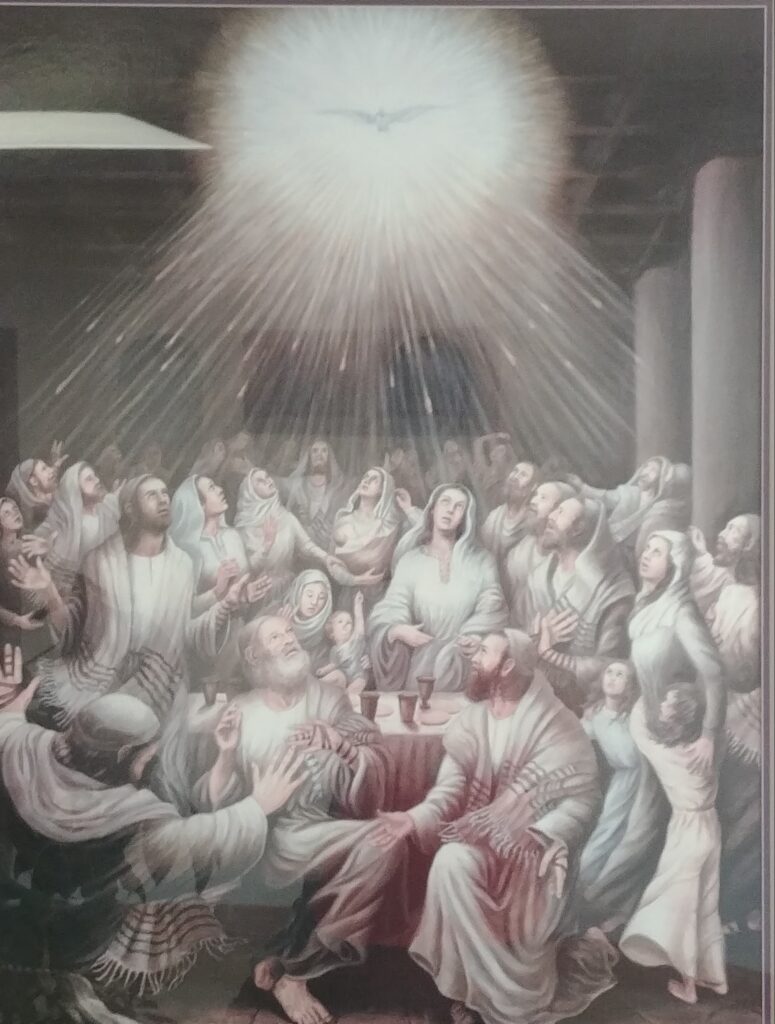

Gregory the Great, who tried to capture the spiritual dynamic which the Holy Spirit imparts to the soul through these gifts: “Through the fear of the Lord, we rise to piety, from piety then to knowledge, from knowledge we derive strength, from strength counsel, with counsel we move towards understanding, and with intelligence towards wisdom and thus, by the sevenfold grace of the Spirit, there opens to us at the end of the ascent the entrance to the life of Heaven” ( Homiliae in Hiezechihelem Prophetam, II 7,7).

Moreover, the order followed was composed by Pope St. The basic definitions for each gift which follow are quoted from Father Aumann’s classic work, Spiritual Theology. They make the faithful docile in readily obeying divine inspirations” (#1830-31).

They complete and perfect the virtues of those who receive them. These are permanent dispositions which make man docile in following the promptings of the Holy Spirit…. The Catechism underscores this point: “The moral life of Christians is sustained by the gifts of the Holy Spirit. Thomas Aquinas asserted, they are in the fullest sense “habits,” from the Latin habitus, signifying their indwelling presence and operation. The idea here is that these gifts help a person to share in the very life and nature of God, now in this life and for eternal life. As such, these gifts help a person attain sanctification and bring to perfection virtues, both the theological virtues (faith, hope, and charity) and the infused virtues (prudence, justice, fortitude, and temperance). These are not gifts one simply invokes in times of emergency rather, these gifts are present to the person as long as he remains in a state of sanctifying grace. Therefore, they are supernatural gifts operating in a supernatural mode or manner. They are properly termed “gifts of the Holy Spirit” because the Holy Spirit bestows them. (Note that while the Hebrew text of Isaiah lists only six gifts with fear of the Lord being mentioned twice, the Greek Septuagint and Latin Vulgate translations list seven, adding “piety” and eliminating the repetition of “fear of the Lord.” Moreover, in the Old Testament, seven is the number of perfection, plentitude, and covenant.)įirst, the term “gift” needs to be clarified.

Amen.” Then, the Bishop confirms each candidate, making the sign of the cross with Holy Chrism on his forehead, and saying, “Be sealed with the gift of the Holy Spirit.” Fill them with the spirit of wonder and awe in your presence. Give them the spirit of wisdom and understanding, the spirit of right judgment and courage, the spirit of knowledge and reverence. Send your Holy Spirit upon them to be their helper and guide. In the administration of the Sacrament of Confirmation, the Bishop prays, extending his hands over the confirmandi, “All powerful God, Father of our Lord Jesus Christ, by water and the Holy spirit you freed your sons and daughters from sin and gave them new life. In the Mass of Pentecost, when the faithful remember the descent of the Holy Spirit upon the apostles, the faithful pray the Sequence, saying, “On the faithful, who adore and confess you evermore in your sevenfold gift descend.” The faithful are reminded of the bestowal of these gifts in the liturgy. God the Father has marked you with His sign Christ the Lord has confirmed you and has placed His pledge, the Spirit, in your hearts” (7, 42). Ambrose in De mysteriis taught, “Recall then that you have received the spiritual seal, the spirit of wisdom and understanding, the spirit of right judgment and courage, the spirit of knowledge and reverence, the spirit of holy fear in God’s presence. Paul taught, “For those whom He foreknew He also predestined to be conformed to the image of His Son…” (Romans 8:29), indicating that through the grace of these sacraments a person takes on an identity with Christ and shares those gifts proper to His role as the Messiah (at least those which are communicable to us).Ĭonfirming this belief, St. While the prophecy of Isaiah pertains specifically to the Messiah, the Tradition of the Church is that these gifts are extended to all of the faithful through the sacraments of Baptism and especially Confirmation ( Catechism, #1303). The spirit of the Lord shall rest upon him: a spirit of wisdom and of understanding, a spirit of counsel and of strength, a spirit of knowledge and of fear of the Lord, and his delight shall be the fear of the Lord” (Isaiah 11:1-3). The revelation of the gifts of the Holy Spirit is rooted in the prophecy of Isaiah about the coming Messiah: “But a shoot shall sprout from the stump of Jesse, and from his roots a bud shall blossom.


 0 kommentar(er)
0 kommentar(er)
